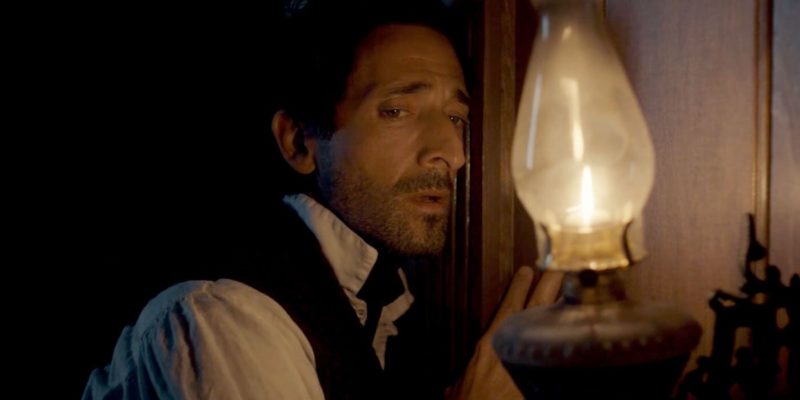
[ad_1]
Chapelwaite series creators Jason and Peter Filardi, with executive producer Donald De Line, discuss putting their own spin on King’s horror story.
Among Stephen King’s most frightening works is his forays into vampire tales, including the 1978 short story “Jerusalem’s Lot.” The short story has been adapted into a ten-episode miniseries by the Filardi Brothers for Epix, in the period piece Chapelwaite. As a sea captain in the 1850s returns to his ancestral home in coastal Maine to raise his three children as a single father, his mixed-race children face unrelenting prejudice while he discovers that something far more frightening roams the shadows with an insatiable thirst for blood.
In an exclusive interview with CBR, Jason and Peter Filardi, along with executive producer Donald De Line, spoke about adding their own take to King’s tale, shared what themes they wanted to highlight in Chapelwaite, and how they hoped to make vampires scary again.
As a man of mixed-Asian descent, I appreciate that your adaptation adds mixed-Polynesian children to the story. What made you want to add that family element in adapting “Jerusalem’s Lot” into Chapelwaite?
Jason Filardi: I think to add children to the story and Charles Boone, to make him a single dad, it up the stakes but also the history of whaling comes into play here. Charles Boone is a whaling captain and these guys would get on a ship, leave New England, and go around the world for four years at a time. Oftentimes, they’d stop at these islands and fall in love with Polynesian women and start a family and we loved that. My brother and I are huge whaling history folks and we loved the idea that Charles Boone was one of these guys. He fell in love with this interesting woman and had these children. And now he has to take these children to small-town Maine where they don’t see people like this too often.
Peter Filardi: Also, if you look at any photographs of whaling crews, the crew was completely multiracial. They were picking up guys all along. It was hard and thankless work. They picked up some multiracial assortment along the way and they all crammed together on the tiny hull of these ships and they slept together and ate together for three years. It was a world where we like to think a man was measured by his worth and not his birth. We found that really interesting and maybe refreshing.
You’ve got ten episodes to work with here as your canvas. While retaining the broad strokes of Stephen King’s original story, what elements did you want to change or modernize for this adaptation?
Donald De Line: In terms of modernizing, I think bringing issues that are still very pertinent today, like issues of prejudice and otherness, because they’re definitely part of King’s story, but we brought them into much sharper focus. Something you guys were really able to expand upon, from otherness and race to religion to being a vampire and otherworldly are all different forms of it.
With Salem’s Lot and “Jerusalem’s Lot” being among King’s most celebrated works and vampires being such a well-worn horror element, what did you want to leave your own mark on with this story and the vampire genre?
Peter Filardi: We were hoping to deconstruct vampire mythology, to rip and strip away the superpowers and the glamor and go right back to the folk roots of graveyard-feeding, ghoulish vampires. We wanted to do the MTV Unplugged version and unnerve people. That was a goal.
Developed for television by Peter and Jason Filardi, Chapelwaite premieres Aug. 22 on Epix.
About The Author
[ad_2]






